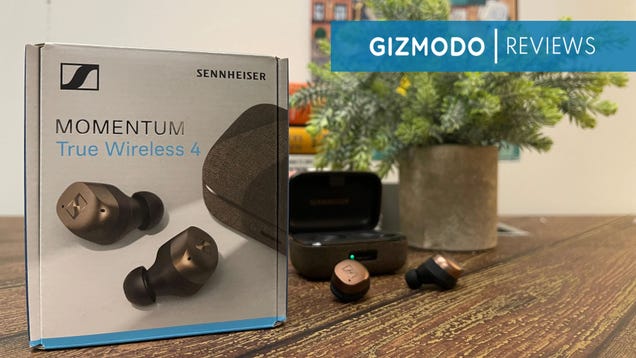Serums typically contain higher concentrations of retinol and have a lightweight, liquid texture that quickly absorbs into the skin. Retinol creams have a thicker, more emollient texture.
Even if you’ve barely dipped your toes (or should we say your T-zone 😉) into the wide world of skincare, you prob know about retinol. This vitamin A derivative is excellent at tackling hyperpigmentation, fine lines, and dullness.
But since there are countless different retinol products on the market, it’s good to know what’s up. Here’s everything you need to know about the differences between retinol cream and serum, and which is best for your unique skin type.
Retinol creams often contain ingredients like:
- Retinol in concentrations of .1 to .25%
- Emollients like shea butter, coconut oil, or ceramides, which hydrate skin
- Humectants like glycerin or hyaluronic acid to aid hydration
- Emulsifiers like cetyl alcohol or polysorbate help blend oil and water-based ingredients
- Thickeners like cellulose derivatives or waxes create a creamy texture
- Soothing agents like chamomile or green tea extract reduce redness or irritation
- Vitamin E, an antioxidant that can improve retinol’s effectiveness
- Preservatives like parabens to extend shelf life
- Fragrances like botanical extracts or synthetic scents
Retinol cream pros
- Gentle on skin. Since retinol creams contain emollient, they permit gentler absorption. So, starting with a cream is a good idea if you have sensitive skin.
- Moisturizing and protective. The emollient in retinol creams moisturizes your skin and provides a buffer between your skin and the elements – that way, there’s no need to apply moisturizer on top.
- Day or night use. Most retinol creams can be used morning or nightly – your pick.
Retinol cream cons
- Not good for layering. If you want to layer several ingredients, a cream prob isn’t your best bet – otherwise, you risk your face feeling like a frosted cake.
- May be pore-clogging. The thicker texture and additional ingredients (like fragrance) may be pore-clogging for some.
- Lower concentrations. If you need a heavier-duty dose of retinol, a cream prob won’t cut it.
Retinol serums often contain ingredients like:
- Retinol in concentrations of .5 to 1%
- Humectants like glycerin or hyaluronic acid to aid hydration
- Oils like jojoba, grapeseed, or squalene nourish skin
- Emulsifiers like cetyl alcohol or polysorbate help blend oil and water-based ingredients
- Vitamin E, an antioxidant that can improve retinol’s effectiveness
- Soothing agents like chamomile or green tea extract reduce redness or irritation
- Silicones like dimethicone or cyclomethicone gives the serum a silky texture
- Preservatives like parabens to extend shelf life
- pH adjusters to stabilize the serum and boost retinol’s effectiveness
Retinol serum pros
- Highly concentrated. You can find OTC retinol serums in strengths up to 1% and prescription serums at up to 5%. If your skin needs a higher concentration, a serum is for you.
- Super absorbent. Serums are lightweight liquids that absorb into the skin much faster and penetrate deeper than a cream.
- Good for layering. If you have a multi-step skincare regimen, stacking your (compatible) serums is a must.
- May be more effective for some. If you have serious hyperpigmentation or deeper wrinkles, a serum will typically lend more drastic results than a cream.
Retinol serum cons
- Not great for daytime use. Since retinol increases photosensitivity, you’ll always need to load up on SPF to counteract potential damage. But the increased concentration in serums means you should only apply them at night to play it safe.
- It’s not as moisturizing. Since serums don’t contain an emollient, they’re not as moisturizing or as protective for the skin as a retinol cream. After applying a serum, you’ll always need to follow with a moisturizer in order to hydrate and lock in moisture.
Ultimately, the choice whether to go with a retinol cream or serum is up to you.
But in general, retinol creams are best for people who:
- have sensitive skin
- have mild-to-moderate skin concerns
- don’t use several other serums or skincare ingredients
- have dryer skin
And retinol serums are best for those who:
- have more severe skin concerns
- want to layer several serums or skincare ingredients
- have less sensitive skin or skin that has already acclimated to retinol
- have oilier skin
Retinol creams provide a gentle, moisturizing option ideal for dry or sensitive skin. Serums provide higher concentrations of the active ingredient, ideal for targeting advanced skin concerns.
For deeper wrinkles or serious hyperpigmentation, go for a serum. A cream could do the trick if your skin issues are less intense.
Just be sure to talk to a dermatologist before making any major changes to your skincare routine.

 10 months ago
115
10 months ago
115









 Bengali (BD) ·
Bengali (BD) ·  English (US) ·
English (US) ·